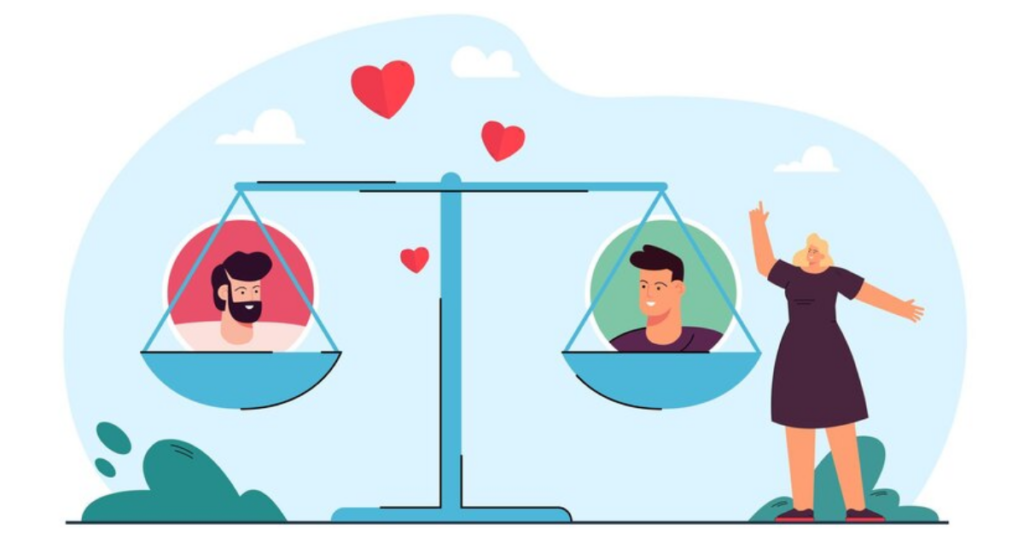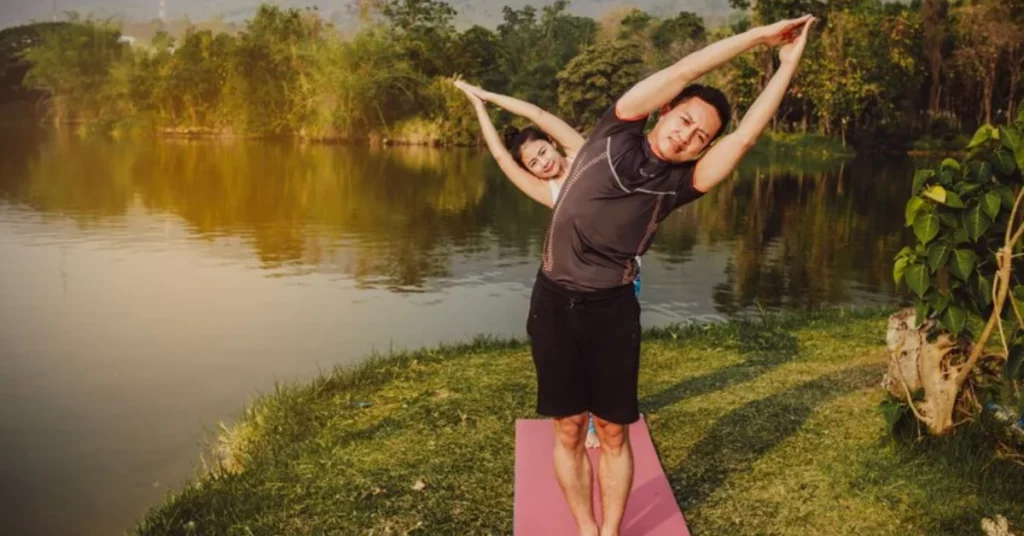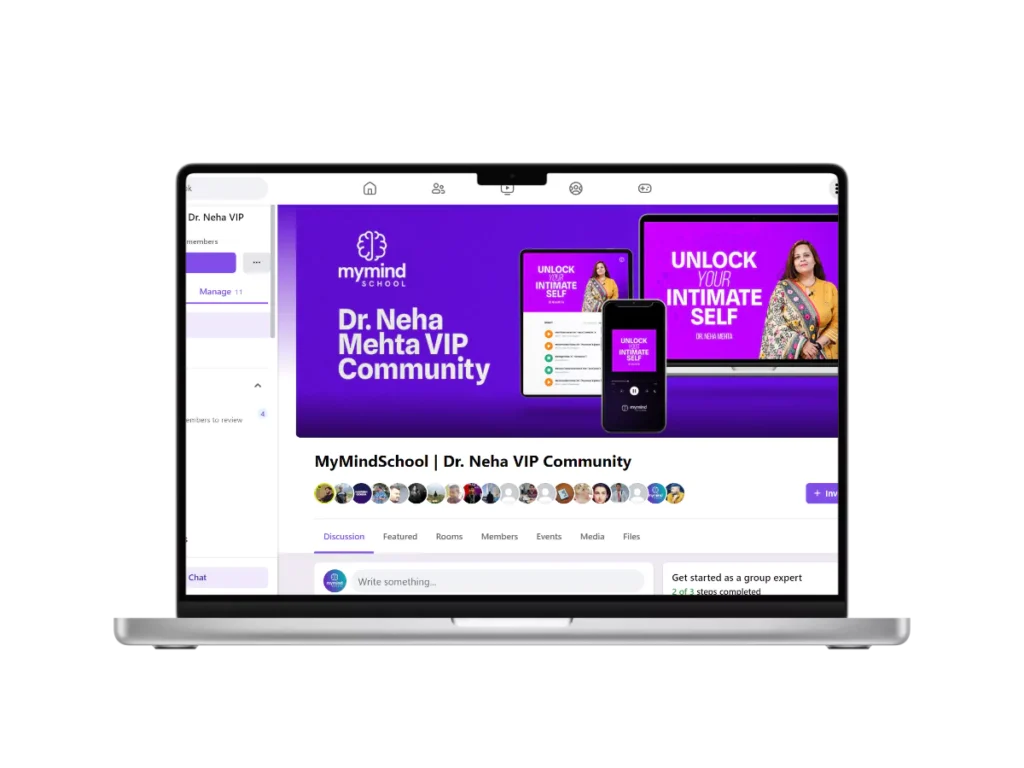If you ever feel worried or anxious, please find comfort in knowing that many people go through the same emotions. And it is normal to have that kind of feeling. One thing that may help is mindful meditation. It’s a kind of superpower that can change your mood. Mindful meditation is not something strange or magical, just being aware of what is happening in the present. There are so many benefits of meditation that we will discuss later in this article. Mindful Meditation for Anxiety helps calm your mind and allows it to relax.
Meditation and focus can help alleviate anxiety in the long run. It’s like giving your mind a break from all the tension and sense of pressure to succeed that’s been building up over time. As time goes by, you might find that you feel more at ease or calmer than before. So let’s explore this simple practice with a lot of benefits for treating anxiety disorder.

What Is Anxiety?
Anxiety is a feeling everyone gets to some extent. It feels like being nervous or afraid when you think something bad might happen. You might feel this way before an exam, when you meet new people, or before a big event; it is perfectly normal for people to have a bit of anxiety from time to time. That is why you must understand the importance of meditation in healing anxiety.
Anxiety is like having a constant weight on your chest which makes you feel like you can’t breathe. For some people, anxiety is very manageable and for some, it is very hard to deal with. Mindfulness and mental health always go hand in hand. Simple fifteen minutes of Mindful meditation can do wonders for your anxiety.
Imagine that your brain is a security system in operation. Normally it should say something is wrong and tell people about a fire alarm going off when there’s smoke. But sometimes, even though there is no smoke at all, the alarm goes off and goes off. That is what happens with anxiety. Your brain calculates something terrible might just happen, even if everything is fine. Especially for students or young adults. They have a lot of constant pressure to perform well. There are several benefits of Mindful meditation for students which can make their lives a lot easier and help them live up to their potential.
What Are The Benefits Of Meditation?
Meditation is like giving your mind a chance to relax. There are several benefits of mindfulness meditation for anxiety. Let’s explore some of these benefits in a way that’s easy to understand.
1. Stress Reduction:
When you’re tense and overburdened by stress, both your body and mind will act up. The calming of your mind and relaxing your body through meditation is like taking in a deep breath to exhale all the strain, leaving you lighter but at the same time more at ease in life. This is one of the best benefits of meditation for anxiety.

2. Improved Focus:
Mindful Meditation and focus can calm your mind from all the chaos, enabling a better grip on attention. It will not only improve your concentration but also leave you with extremely good self-control and a high sense of self-esteem.
3. Enhanced Creativity:
Creativity is like the roaring flame that sets new ideas ablaze. Meditation gives your mind a quiet corner where these ideas can emerge from. It’s like sowing seeds and watching as they grow into beautiful thoughts just like innovative flowers of the mind. This perfectly emphasizes the importance of meditation in your life.
4. Emotional Balance:
Feelings can go up and down just like riding a roller coaster at any given moment. With meditation, you can handle these emotional ups and downs more evenly. It allows you some time to respond to situations with thoughtfulness instead of reacting emotionally or spontaneously. Next time you wonder what are the benefits of meditation you should remember this.

5. Better Sleep:
Have you ever tossed and turned all night, unable to shut off your racing thoughts? Meditation can help quiet these thoughts, making it easier to drift off into a peaceful sleep. It’s like gently rocking yourself into dreams, waking up feeling refreshed and rejuvenated. Mindfulness and mental health are very closely related to a good night’s sleep.
6. Increased Self-Awareness:
This is one of the most important benefits of meditation for students because self-awareness is like having a flashlight to be able to see yourself more clearly. Meditation lets you shine this light on your thoughts, feelings, and behavior. It’s like looking into an emotional mirror in your head and understanding yourself better.
7. Lower Blood Pressure:
High blood pressure can put a strain on your heart and overall health. Meditation helps to relax your blood vessels, reducing this pressure. It’s like opening a valve to release built-up tension, promoting a healthier heart and body. As a result, you will see a decline in your anxious thoughts as well. It is one of the most common benefits of mindfulness meditation for anxiety.

8. Greater Resilience:
Resilience is like having a superpower that helps you bounce back from challenges. Meditation strengthens this power by cultivating inner strength and courage. It’s like building a shield around yourself, protecting you from negativity, and helping you face life’s ups and downs with grace. This is one the most vital benefits of Mindful Meditation for Anxiety.
9. Improved Relationships:
Relationships thrive on understanding, empathy, and patience. Meditation helps you develop these qualities by fostering a deeper connection with yourself and others. It’s like watering the roots of a tree, strengthening your bonds, and bringing more harmony to your interactions. Meditation and focus on the betterment of your relationship will help you see the results you want.
10. Enhanced Well-Being:
Well-being is made up of happiness, contentment, and peace. Meditation nurtures this by filling you with a sense of calm and gratitude. It’s like soaking up the sunshine of life, feeling more alive and appreciative of the present moment. This is the importance of meditation that everybody needs to understand.

So, if you ever feel like life is a whirlwind of chaos, remember that meditation is your calm. It’s a simple yet powerful tool that can bring peace, clarity, and joy to your life. So now that you know what are the benefits of meditation why not give it a try? Take a deep breath, close your eyes, and let the magic of meditation unfold.
How To Prevent Stress And Anxiety?
Stress and anxiety can feel like big, scary monsters, but don’t let them push you around. There are simple things you can do to keep them from getting out of hand. One important thing to stop stress and anxiety is to take care of yourself. Get enough sleep. Eat a high-protein, low sugar breakfast and exercise. If you feel good physically, it’s easier to feel good mentally. Mindfulness and mental health have a very closely linked relationship.
Another way to avert stress and anxiety is to take a break. Life sometimes seems like an endless race where time is not available at all – but slowing down helps with keeping you sane. This is one of the best benefits of meditation for students. Maybe you could go outside for some air or listen to your favourite music. Or maybe you can just sit by yourself and do nothing for a few minutes. These little pauses in life’s race can help your brain catch up to work more effectively. And talking to someone you trust can also help.

When life becomes overwhelming, it’s easy to look past the good things. So try and concentrate on positive things in your life. Maybe you can write down three things that you’re grateful for every day or start keeping a journal of happy moments. This will help to move your focus away from stress and onto the good things that are happening around you. Now that you are aware of a few of the many benefits of mindfulness meditation for anxiety you can turn your life around and become the best version of yourself.
Conclusion:
Like a gentle breeze that soothes our busy lives, meditation brings peace and tranquility. If we take up meditation on a regular basis there are a lot of benefits of mindfulness meditation for anxiety that contribute to our general well-being. From reducing stress and improving our ability to concentrate to cultivating creativity and enhancing relationships– meditation provides a simple but powerful way by which we can gracefully weather life’s adversities with resilience.
So whether you’re seeking relief from anxiety or depression, looking to improve sleep quality, or simply want more of a sense of inner peace in your life. When you understand which resources are valuable for you, you should make plans based on your situation: start with just a couple of minutes every day and gradually increase until. After time with full effort put into it, you may find that meditation has become an integral part of your life that enriches you deeply in ways never thought possible before with, the help of Mindful Meditation for Anxiety.
FAQ:
Q 1. How does mindfulness help anxiety?
Mindfulness helps anxiety by teaching us to focus on the present moment without judgment. When we’re anxious, our minds are often filled with thoughts of the future or mistakes from the past. Mindfulness helps us to shift our focus back to the here and now. It allows us really to be present. By doing this, we can observe what we think and feel without getting caught up in those thoughts or emotions. Doing so can create a sense of distance from our anxiety. We feel like it’s more controllable.
Q 2. Can anyone practice mindfulness?
Absolutely! Mindfulness is for everyone, no matter what age, background, or beliefs you have. It does not require any special skills or equipment. All that’s needed is a willingness to be present in each moment of your life. Mindfulness can benefit you if you’re a busy parent, a student, a working professional, or retired. It’s a simple practice that you can fit into any lifestyle.
Q 3. When is the best time to meditate?
The best time to meditate is when you can find a few minutes of peace and quiet in your day. Some people like to meditate first thing in the morning so that they start their day on an even keel. Others find it helpful later at night before bed as a good way of unwinding. Ultimately, the best time for you will be whenever works best for you and fits into your schedule consistently.
Q 4. How long should I meditate for anxiety relief?
There is no one-size-fits-all answer to this question. It depends on what works for you and how you feel. Some people find relief from anxiety in as little as a few minutes of meditation each day, while others may need longer sessions. You should start off by listening to your body, and go for a duration that feels comfortable. As you gain more experience, you can gradually increase the length of your meditation sessions.
Q 5. What are some simple mindfulness techniques?
Several simple mindfulness techniques can be incorporated into your everyday life. Deep breathing powerful tool that assists in calming the nervous system by taking slow, deliberate breaths. A body scan means methodically bringing awareness to each part of your body: whether it has tension or pain, do not pass judgment. You are supposed to simply notice. Mindful walking lets you focus on the act of walking. For example, the sensation when your feet hit the ground or how your legs feel in movement are both things that can be observed with mindfulness, as well as with joy.
People also read :-
How Can You Build Trust After Betrayal in a Relationship?
How To Relax Your Mind? Best Tips to Calm Down in Life
Recognizing Toxicity: 8 Signs of toxic girlfriend




